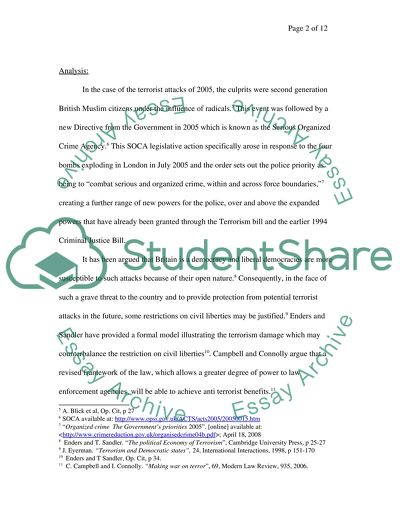Cite this document
(“Terrorism and civil liberties in the UK Essay Example | Topics and Well Written Essays - 2250 words”, n.d.)
Terrorism and civil liberties in the UK Essay Example | Topics and Well Written Essays - 2250 words. Retrieved from https://studentshare.org/social-science/1545909-terrorism-and-civil-liberties-in-the-uk
Terrorism and civil liberties in the UK Essay Example | Topics and Well Written Essays - 2250 words. Retrieved from https://studentshare.org/social-science/1545909-terrorism-and-civil-liberties-in-the-uk
(Terrorism and Civil Liberties in the UK Essay Example | Topics and Well Written Essays - 2250 Words)
Terrorism and Civil Liberties in the UK Essay Example | Topics and Well Written Essays - 2250 Words. https://studentshare.org/social-science/1545909-terrorism-and-civil-liberties-in-the-uk.
Terrorism and Civil Liberties in the UK Essay Example | Topics and Well Written Essays - 2250 Words. https://studentshare.org/social-science/1545909-terrorism-and-civil-liberties-in-the-uk.
“Terrorism and Civil Liberties in the UK Essay Example | Topics and Well Written Essays - 2250 Words”, n.d. https://studentshare.org/social-science/1545909-terrorism-and-civil-liberties-in-the-uk.


